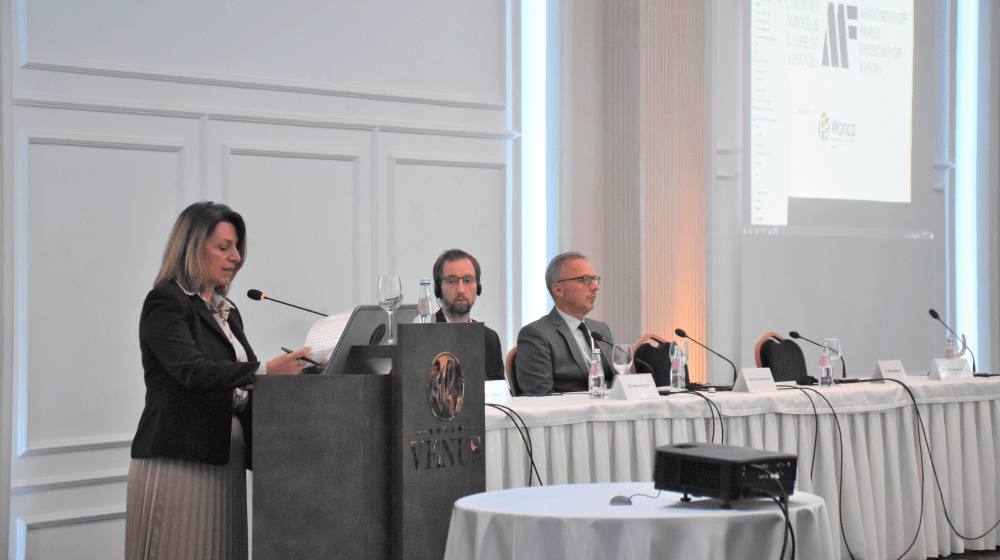UNFPA office in Kosovo supported 7th International Conference of Family Medicine organized by the Association of Family Physicians of Kosovo.
In her opening remarks, UNFPA Kosovo Office Head Dr. Visare Mujko-Nimani stressed the importance of family medicine in Primary Health Care (PHC) as a cornerstone of sustainable health systems geared towards achieving Universal Health Coverage and implementing the Sustainable Development Goals related to reproductive health and health care in general.

Family Medicine (FM) supports people to live healthier lives in their communities, from healthy birth to an active old age free of the burden of disease. The family doctors are the ones to whom patients trust their health, from whom they receive advice and with whom they first contact as a doctor for maintaining health and for eliminating health problems. They provide a first step for the health of the whole family.
Dr. Nimani also emphasized that Universal Health Coverage cannot be achieved without the integration of the SHSRR in the context of Access to Universal Health Care and PHC. This requires a combination of political commitment and well-defined and coherent strategies to ensure success.
Since the year 2022 has been declared the year of persons with disabilities in Kosovo, Dr. Zarife Miftari, Program Analyst for Sexual and Reproductive Health at UNFPA, facilitated the workshop dedicated to the sexual and reproductive health of persons with disabilities.

In her interventions, Dr Miftari stressed that according to the World Health Organization, more than 15% of the world's population is affected by various types of disabilities and, while living with disabilities has a major impact on the overall quality of life and well-being, sexuality is one of the most sensitive aspects of life affected by disability.

Apart from being an essential component of human life, sexuality and disability tend to be taboo topics and rarely discussed. In Kosovo, there is little data related to the sexual and reproductive health of people with disabilities, and a research conducted by the Kosovo Forum for the Disabled, supported by UNFPA, showed that the situation is not at all favorable regarding this matter:
● The vast majority of participants (82.8%) have never visited a family medicine center to consult about sexual and reproductive health
● 57.8% of the research participants reported that they are not well informed about sexual and reproductive health. Men were significantly more informed compared to women about SRH.
● 52.3% have no or little knowledge of the concept of family planning.
● 55.4% are not at all informed or are little informed about the prevention of HIV / AIDS and other STIs
● 70.8% agree that individuals with disabilities have the right to have family
● 62.9% agree that it is acceptable for women with disabilities to have children
● About 7% of participants stated that there were attempts to force them into sexual relations or to force them to sexually touch someone against their will.
Mr. Bujar Kadriu, director of the Kosovo Disability Forum, also spoke about sexual and reproductive health for people with disabilities, as guaranteed by international conventions.

During the workshop, Dr. Drita Lumi and Prof.Dr. Zejdush Tahiri presented the training package for family doctors and nurses regarding the provision of reproductive health services for people with disabilities.




